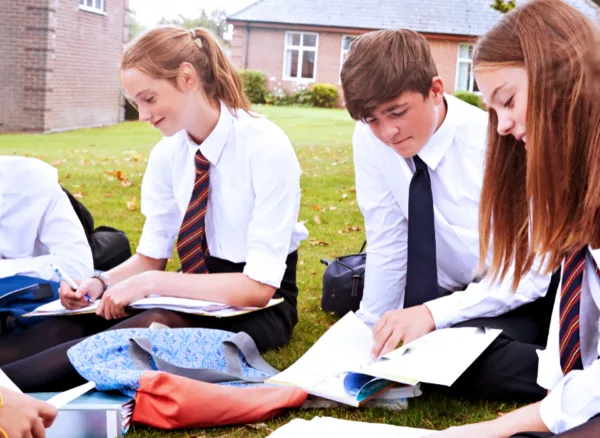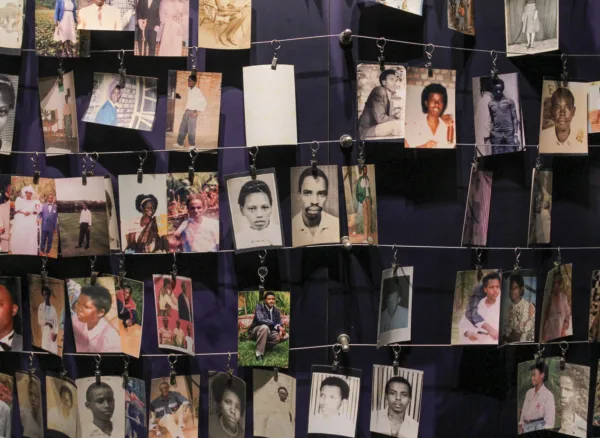Menu

A survivor of the Genocide against the Tutsi in Rwanda discusses his forgiveness journey, and life’s work nurturing peace, forgiveness, and reconciliation in his country and across the world.
LISTEN WITH THE BELOW PLAYER
“Forgiveness starts by loving myself so that I can forgive the perpetrators.”
"On April 6, 1994, beautiful Rwanda, known as the Land of a Thousand Hills, became a hell on Earth. Between April and July 1994, hundreds of thousands of Rwandans were slaughtered in a horrifying frenzy of state-sponsored terror. After the genocide, the country — victims and violators alike — had to find a way to live together in peace. Freddy Mutanguha, an ethnic Tutsi, was just eighteen years old when the genocide began. "He’s still trying to make sense of the past to try to understand those who were family and friends one day, and the genocidal exterminators, the next. Every day, he and his colleagues at the Kigali Genocide Memorial ask the hard questions: how did this happen, and how can we stop it from happening again and again across the world?" Today, Freddy shares the story of his unimaginable losses, the miracle of his survival, and his life’s work nurturing peace, forgiveness, and reconciliation in his country and across the world."
Freddy Mutanguha witnessed and survived many horrific acts during this terrible time, including the murder of family members. He lost his parents, four sisters, and 80 extended family members. His journey of survival involved hiding, fleeing, and encountering danger from both friends and strangers. He has dedicated his life to fostering peace, forgiveness, and reconciliation in Rwanda and globally.
In 2004, Mutanguha joined the Aegis Trust, an organization that works to prevent genocide and mass atrocities worldwide, and went on to also become Director of the Kigali Genocide Memorial. He led the development of Aegis’ peace education program in Rwanda and is now leading Aegis’ work to take this model beyond the borders of Rwanda.
Mutanghua's personal forgiveness journey has taken more than 17 years, and still continues on. "It's important to build up hope. Because losing your parents, losing your family members, doesn't mean the end of the world. There is a way you can stand up, you can decide to lead your life and you can actually succeed in your life without all those supports, because the support you need is within you," he shares.
One of the most important lessons he's experienced on his journey is that forgiveness is not solely for those who committed the heinous crimes. "My understanding, and how I explain it to other survivors is: forgiveness is not only for the perpetrators. Forgiveness is for us. Because carrying this anger, carrying this hopelessness, carrying these feelings — that's really heavy in our mind. It's killing us, because it's like filling ourselves with all the poisons, and that's really killing our mind and our future and the future of our children... The best thing is to start emptying ourselves of this anger." It's key, says Mutanghua, to begin the process of forgiveness by focusing in the benefits it has for the one who forgives, rather beginning with how it will affect offenders. "It starts by loving myself so that I can forgive the perpetrators. We get this conversation with perpetrators after we, ourselves, understand the steps we need to take, why we need to do it, and what benefits forgiveness has for us as survivors."
"Five children I have, and I want them to live in peace. I don't want them to inherit what I’ve been living in. So, having my children and a desire to have a nation of peace, a place where my children will live gives me strength to say the only way is to make a peace with my perpetrators," says Mutanghua. Listening to testimonials from those who have suffered the atrocities and honoring the dignity of those lost deepens understanding of what happened, and helps the "people on both sides — the perpetrators and the survivors" — is part of the work Mutanghua and his colleagues do. "You cannot teach forgiveness. You only experience it," says Mutanguha. "The only way to get people to embrace the path to forgiveness is to put them into that experience."
Aegis Trust’s Kigali Genocide Memorial and Tufts University’s IARYD are partnering to create science-backed peace-and-values programing for the new Isōko Peace Institute based on data collected from Rwandans’ testimonies.
As a "place that creates empathy," the Kigali Genocide Memorial does this. The memorial "creates a consciousness about the past. It's a place where I've seen the perpetrators and children of perpetrators, or the family members of perpetrators, coming together with survivors to pay respect of the victims of genocide." He explains that the peace program he and his team was "created to try to examine and to dialogue about our past." It's meant for both perpetrators and survivors to process and express emotions.
The proximity of the perpetrators and survivors in Rwanda, Mutanguha notes, is unique. "The perpetrators and survivors right after genocide still live in the same villages, still live as neighbors in the same neighborhood. So, our program has been finding these perpetrators and survivors in their own homes, and showing them how to forgive, and how to accept forgiveness."
It's important, Mutanghua emphasizes, that this program is "not an education that is imported" but is led by those who have lived through the horrors. "We are on the same journey. The only way to get this country standing up again and standing on its own feet as a country of peace and prosperity depends on us, on how we deal with our own experience." The Memorial "consolidates a message of remembrance, to support these people, to say, these are the victims, and you, the ones who did it, and these are our families. But we have our country. We have our society, we have our children."
Templeton World Charity Foundation funds a researcher-practitioner partnership between Aegis Trust's Kigali Genocide Memorial and the Institute for Applied Research in Youth Development (IARYD) at Tufts University to build a useful theory-of-change model and associated measurement tools informed from testimonials of Rwandans Mutanghua and Aegis facilitate. [Learn more about the project here.] The researchers will take data that they collect to create science-backed peace-and-values programming, for Rwanda and globally, at the new Isōko Peace Institute. "This is designed to be a global peace institute to take the history, to take the experience we got from Rwanda — and from seven other nations in Africa — to the world to be a global space for people to come in and really learn from each other and exchange ideas and make decisions for peace together," says Mutanguha.
Related video: Forgiveness: A Pathway to Peace, Justice & Strong Institutions from Rwanda to the World (video)
Related podcast: The Science of Forgiveness with Freddy Mutanguha and Dr. Elizabeth Dowling (podcast)
Built upon the award-winning video series of the same name, Templeton World Charity Foundation’s “Stories of Impact” podcast features stories of new scientific research on human flourishing that translate discoveries into practical tools. Bringing a mix of curiosity, compassion, and creativity, journalist Richard Sergay and producer Tavia Gilbert shine a spotlight on the human impact at the heart of cutting-edge social and scientific research projects supported by TWCF.




